Tourist Travel Information
Welcome to Botswana and Thank You for choosing our fine country as your Safari Destination!
If you visit the Okavango Delta, you will be entering a pristine and untouched wilderness, measuring around 20,000 square kilometres, with the largest remaining concentration of wildlife in Africa.
With this in mind, we would like to make you aware, that when emergencies occur, Travel Insurances do not have the 'on location' means available to evacuate their clients, and depend on locally available service providers - we are the only medically staffed and equipped Helicopter based Rescue Operation for the Okavango Delta and the Kalahari, and although you may have Insurance, we are not available to all.
In 2015 Okavango Air Rescue flew an average of 2 rescues in the Okavango Delta per month. Rounding up, each rescue cost an average of US$ 3’000.00, which after one year adds up to a total revenue of US$ 72’000.00. For this amount we are unable to finance Helicopters, Pilots, Doctors and Administration, all on standby 24/7 and hence we have adopted the "Patronage" system. The system was invented and successfully implemented by "REGA" of Switzerland some 60 years ago. It defines that such machinery cannot survive on a "fee for service" basis and asks the public at large to become Patrons, by supporting the operation through a minimal contribution - in our case Pula 175.- (approx. US$ 16.50).
In recognition of their support, Patrons in an emergency situation will be rescued by our medically equipped Helicopter and Emergency Doctor, ensuring smooth and swift operations. The Travel Insurance will only be invoiced for the costs thereafter.
If you are not a Patron of Okavango Air Rescue, you will of course be evacuated too, however as it is organised by your Travel Insurance, who is not on location, it may, depending on where you are, involve a boat, then a car, then a fixed wing aircraft, all not medically equipped and without a Doctor.
By becoming a Patron of OAR, your support not only keeps us airborne and puts your mind at rest, but it also enables us to fly local People, who do not have Insurances, which is a contribution to the overall wellbeing of Botswana.
Remember: We only fly for our Patrons! Please check with your Travel Agent that you have indeed been registered with us!
Video
Map
Our Flight Radius

Welcome
Welcome To Okavango Air Rescue (OAR)
Okavango Air Rescue is a private company, inspired by the Swiss Rescue Service "REGA" who originally established the Patronage System.
Patronage
The Patronage System
To pay for the overheads of having a Helicopter, a Pilot, a Doctor, a Call Centre and the necessary administration on standby 365 days per year, a Helicopter would need to fly an average of 30 hours at the full rate of Pula 12’500.- per hour every month.
Virtually no Rescue Helicopter worldwide achieves this and the ones that do, operate in high population density areas, which usually are also well developed in terms of road networks and ground ambulances.
This implies, that in rural areas with a low population density, basic or non-existing road network and thus awkward ground ambulance access, Helicopters are of essence, but financially not viable.
The obvious way to overcome this financial hurdle would either be subsidies from the Government, which is a burden for any country, or to increase the hourly flying rate to such an extent, that the costs would be absurd.
The Patronage System tries to overcome this by asking the Public at large to make a yearly contribution of its own choice, but not below 150.- Pula for Citizens and Residents and 175.- Pula for Tourists.
The Patronage is valid for one year and starts with the payment. If the Patronage is not renewed it will expire after 12 months from the initial payment date. It is neither transferable, nor refundable!
Such a fee structure is not only affordable to the Tourist, but also to the general population, as the cost is equivalent to 2 cans of soft drinks per months.
However, to reach a turnover equaling 30 hours of flying per months at 12’500.- Pula per hour, totaling 4’500’000.00 Pula per year, the number of Patrons needed is 30’000. In a low density population area this is a tall order, hence the Patronage System needs additional revenue:
- It relies on the payments received from the Insurance Companies for rescues flown. The Patronage System is not in place to relieve the Insurance a Patron has, from rightfully paying for a rescue. The Patronage Fee is in place, to keep "the tool", which the Insurances worldwide need to use once in a while, airborne.
- It relies on the more privileged Patrons to make a larger contribution than the yearly minimal fee.
- It relies on revenue generated from Primary Health Care Contracts OAR offers for Staff in remote locations of Safari Camps, Mines and Schools.
- It relies on revenue generated for Government approved First Aid Courses, which Okavango Air Rescue provides both in Maun and on location, where ever in the Delta or the Kalahari.
To keep our service airborne join us and become a Patron of
Okavango Air Rescue now!
What does the patronage system give to its patrons?
First and Foremost: Immediate Medical Assistance and Rescue!
Unbeknown to most, for national or international Travel Insurances to sanction a medical rescue takes HOURS! The Insurance Companies can be thousands of miles away and unaware of the prevailing local circumstances. Thus through his/her contribution, the Patron secures the immediate Rescue by Okavango Air Rescue, if medically indicated, irrespective if an insurance is in place, has been alerted, or has sanctioned the rescue.
Benefits for our Patrons:
- If medically indicated, we fly first and only ask for payment from the Insurance later!
- If the Patron has no Insurance or if the latter refuses payment for further treatment, we will transfer the patient to the nearest Government Hospital.
- If the Patron has Insurance we will arrange with them
onwards transport and treatment, whilst the patient
is being cared for in our Holding Facility.
Please note: Okavango Air Rescue’s Medical Emergency Team is so highly qualified, that we can take the risk to fly before actually speaking to the Doctor of the Insurance Company. There is no higher signing power than a fully qualified Emergency Doctor on location of the accident!
Remember: We only have an obligation to fly for our Patrons! To benefit from the above, become a Patron or ensure that your operator has registered you!
SADLY WE ALSO HAVE TO NOTE, THAT ANY PATRON WHO FORCES US TO FLY UNDER FALSE PRETEXTES WILL BE CHARGED FOR THE FULL OPERATION. THE PLACE OF JURISDICTION IS BOTSWANA.
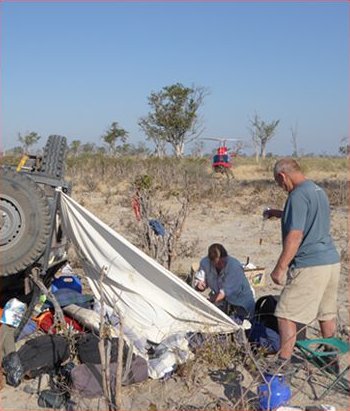

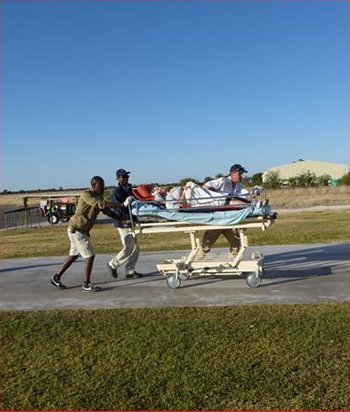

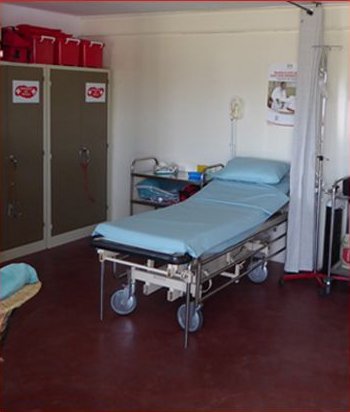
In An Emergency
When is a rescue by Helicopter indicated?If you are in rough or inaccessible terrain:
- The journey to the incident scene is too long for other rescue services
- Access to or from the incident scene is difficult or impossible
You will need immediate medical assistance after:
- A fall from great height
- Multiple casualties
- Trapped persons
- Seriously injured / ill person
- Suspected back or head injuries
- Suspected heart attack or stroke
- Severe Burns, Bleeding
- Amputations, open fractures
- Difficulty in breathing, loss of consciousness
- Snake bite, animal attack
Dial "995"
Our short code Emergency Number is answered 24/7. Short code numbers cannot be dialed from outside the country, hence if you travel with an International Roaming or Satellite Phone, please dial the landline 00267 686 15 06, to be switched through to "995".
What do you say, when you call 995?
Provide the following essential information:
Personal details of Patient:
- Number of Patients
- Patients full Name, Date of Birth and Nationality
Please note: If the Patient is not identified as a Patron we will not be able to fly! In which case contact the patient’s insurance company immediately.
If the patient is a Patron, please state:
- The name of person making the call and contact phone number
- Location of incidence with GPS coordinates if possible and weather conditions
- Number of people around to help
- If available Medical Insurance Telephone Number and Contract Number.
The operator will then connect you to a senior member of our team, who will assess the medical requirement for a Helicopter Rescue as follows:
Details of incidence/accident:
- What happened when?
Condition of Patient:
- How is the patient? (Awake, unconscious, talking, breathing, walking?)
- What is the patient's major problem?
According to the problem, you might give us more details
- Colour and condition of the skin
- Amount of Blood loss
- Pulse rate
- Blood pressure
- Temperature
- Breathing rate
- Pain Score
- Allergies
- Current medication
- Past medical History
If the Patient's condition requires a rapid medical response, the Helicopter and its Team will be airborne as quickly as possible and the caller will be provided with an approximate arrival time.
Please note: the final decision to fly is at the discretion of the Senior Medical Staff. If a Patron insists on utilising our Services for a non-emergency situation, such as an urgently required HIV-Test for example, he/she would need to provide the full payment.
What do you do when the Helicopter arrives?
Landing site management:
- Please confirm that there is an area of roughly 30 meters in diameter with no overhead obstructions like cables, power lines or trees where the helicopter can land.
- Remove any loose objects lying around (clothes, backpacks, sunglasses etc.).
- Once you hear the Helicopter approaching, leave the patient (if you are on your own) and go to the landing area which you must have identified beforehand and where the pilot can easily see you.
- Kneel down and stay where you are when the Helicopter is approaching.
- Maintain eye contact with the Pilot.
- Do not approach the Helicopter until the rotor has come to a standstill or the Pilot has given you a sign!
What happens after the Helicopter has arrived?
Once on location we evaluate and stabilize the Patient.
Procedures, such as re-positioning fractures, simple dislocations or suturing minor wounds will be done with the Patient’s consent on location. Depending on the outcome, the Patient will be provided with all necessary medication and will either stay at the site, or be flown out for further examination and treatment.
If communication is possible, the first feedback is given to our Headquarters, to contact the Insurance to organize any further transport, examination and treatment, providing a quick and continuous medical service.
For Patients who have to be further medevac’d by plane, we provide a fully medical equipped Holding Facility at Maun International Airport where we take care of the Patient until the next medical Crew has arrived.
If no communication is possible and if medically indicated, the patient is flown back to civilisation immediately. The following procedures will be as described above.
If the Patron has no Insurance or if the Insurance refuses payment for further treatment, we will deliver the patient to the nearest Government Hospital.
What are our capabilities on location?
Our Helicopter is a fully customized medically fitted Bell Jetranger 206 III and is based out of Maun International Airport, Botswana.
On a mobile basis we have all the Medications and Medical Equipment with us that a Patient would find in the emergency room of a General Hospital.
We can thus provide on location sufficient Pain Management, Stabilisation of Heart Insufficiency, manage acute life threatening emergencies like Myocardial Infarction and Stroke, support ventilation and give Oxygen in Respiratory Distress, prevent major side effects from Allergic Reactions, provide emergency treatment for severe diseases such as Malaria, Meningitis, Pneumonia, Abdominal and Urogenital Infections, as well as control Bleedings, Diabetes and Epilepsy, repositioning of Fractures and Dislocations under general intravenous Anaesthesia with continuous Monitoring of the Vital Signs (Pulse, Blood Pressure, ECG, Oxygen Saturation, Breathing Rate). The above is not exhaustive.
Our fully up to date medical Equipment includes a Cardiac Monitor and Defibrillator with Pacemaker, a 12, 5 or 3 lead ECG, SpO2, CO2 and non-invasive Blood Pressure Measurement, Infusion Pumps and Syringe Drivers, Suction Unit with backup, Oxygen, Ventilator, Suture Kits, Urine- and Nasogastric-Catheters, Pulmonary Drains with Drainage Sets, Standard Rescue and Immobilisation Equipment and a special Helicopter Vacuum Mattress as well as a Scoop Stretcher.
Even though we are in a remote area the range of our Emergency Medication consists of intravenous resuscitation applications like Adrenaline, Amniodarone, Antibiotics, Antihistamines, Anti-Nausea-Drugs, Atropine, Benzodiazepines, Beta-Blockers, Cortisone, Dopamine, Ephedrine, Furosemide, Insulin, Ketamine, Morphine, Muscle-Relaxants, Propofol, Salbutamol and Universal Snake Antivenin.
If a Patient does not have to be flown out we can supply the person with essential oral Pain Medication, Antibiotics, Antihistamines, Eye- Nose- and Ear-Drops, Heart-Medications, Prednisone as well as Wound Dressings, Bandages and Inhalers.
Quick Tests like Blood-Sugar Measurements, Urine-, Malaria-, HIV- and Pregnancy Tests can be done on the spot.
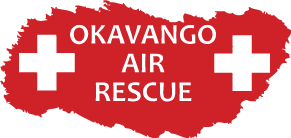
Who We Are
Okavango Air Rescue was founded in March 2011 by Christian Gross and Dr. med. Misha S. Kruck to provide a professional medical Helicopter Rescue Service, for the remote and inaccessible areas of the country, of which there are many, due to the vastness of Botswana.
Misha has had a long association with REGA, the famous medical rescue service of Switzerland, which supplies helicopter borne emergency care to people in remote and inaccesseible areas of the Swiss mountains. The similarity of the inaccessible terrain has been the basis of the idea under which Okavango Air Rescue has been created and led Misha & Christian to purchase a Jetranger Helicopter and establish the service.
Since the 15th of October 2012 Okavango Air Rescue is airborne and operational. From a “two man band” the company has grown to a substantial Team. All medical Team Members participate regularly in continuing medical education and ongoing professional development.
All our flying operations are managed by Helicopter Horizons, a successful Helicopter Charter Company in Maun, founded in 2004 by Andrew Baker and Hannah Rees. The company also supplies experienced bush pilots to Okavango Air Rescue on a 24 hours, 7 days per week basis, as well as hangar space and all logistics required in the field of aviation.
Helicopter Horizons is an ICAO approved Air Operator with a fleet of Bell Jetrangers and Robinson 44’s. The company upholds the highest international standards with regular government and independent audits carried out each year. All company Pilots have vast local "bush" knowledge which is vital when operating in the challenging environments of Southern Africa. The Pilots also go through rigorous biannual re-currency training to ensure their flying competency. They are trained in First Aid, and assist the medical Team if needed.
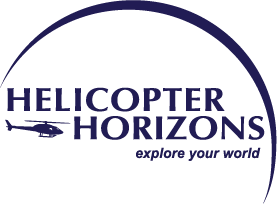
Okavango Air Rescue Team

John Dikgang
Deputy General Manager

Christian Gross
Director
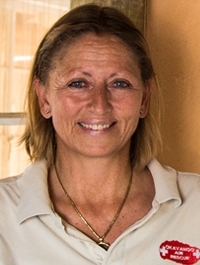
Dr. Misha Kruck
Head of Medical Operations

Brett Elgar
General Manager & ALS Paramedic

Aldo Bezzicheri
Chief Pilot


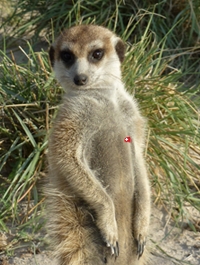
Expert in waiting
Expert in waiting

Dr. George Onyach
Doctor

Dr. Peter Bareki
Doctor

Expert in waiting
Expert in waiting

Expert in waiting
Expert in waiting



Byron Andrews
Pilot
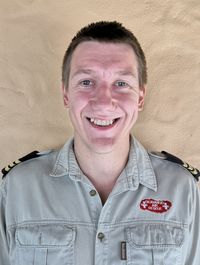
Werner Meiring
Pilot
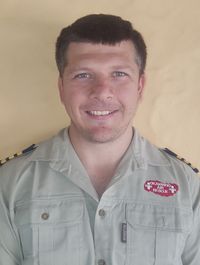
Christo Pretorius
Pilot
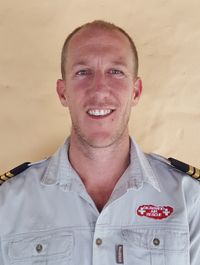
Dwayne Elderkin
Pilot
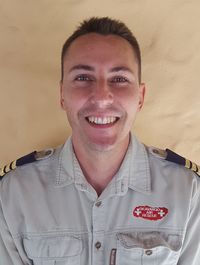
Elbert Laubscher
Pilot


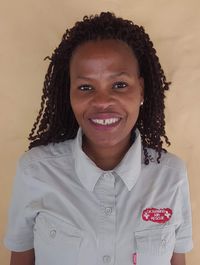
Tebogo Sambera
Paramedic Technician
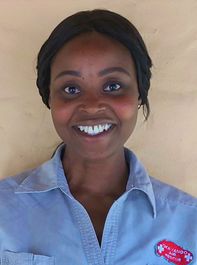
Boingotlo Gopolang
General Nurse
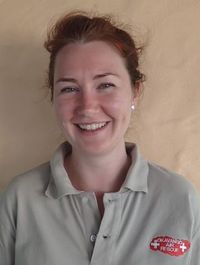
Gemma Pierce
Emergency Nurse
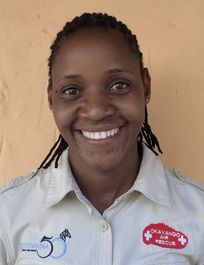
Legaufi Gaborutwe
Occupational Health Nurse

Ruth Gadifele
Paramedic Technician


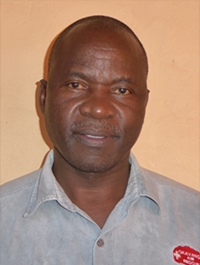
Masimba Togara
First Aid Trainer & Paramedic
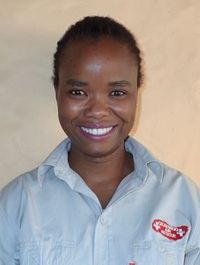
Bojelo
Administration
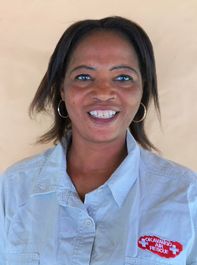
Tebelelo Tembwe
Accountant
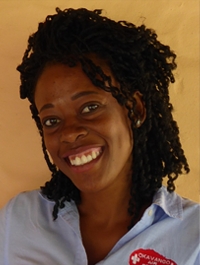
Goitse Setlhodi
Receptionist

Kennedy Phiri
Radiographer


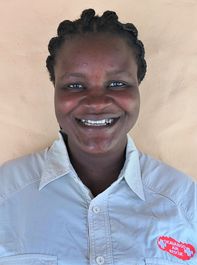
Alvin Kamunduuoo
Receptionist
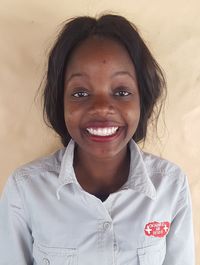
Ontiretse Gaseikanngwe
Receptionist
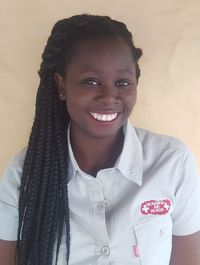
Khethiwe Thayi
Receptionist
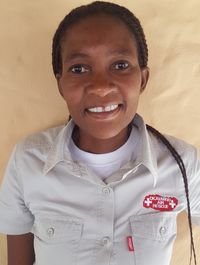
Keobake Mokobe
Housekeeping
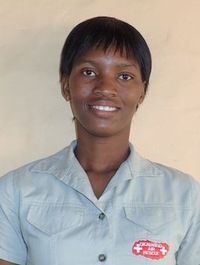
Kebame Tirelo
Housekeeping


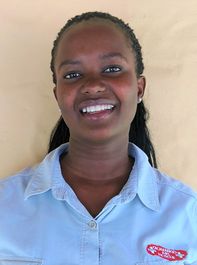
Goitseone Dilebanye
OAR Representative
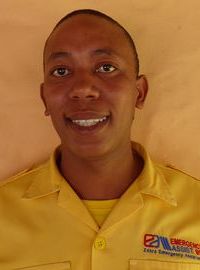
Onkemetse Moilwa
Paramedic Emergency Assist
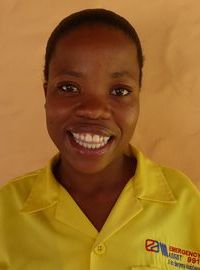
Lolo, Irene Mabeo
Paramedic Emergency Assist
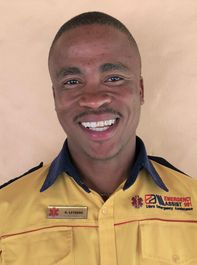
Reginald Letsebe
Paramedic Emergency Assist
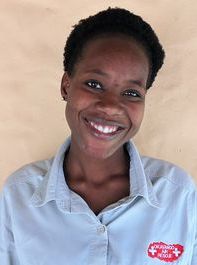
Kefilwe Hulela
Housekeeping

Helicopter Horizons Team
The First Okavango Air Rescue Office in 2012
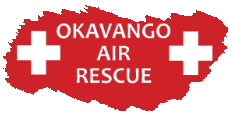
Okavango Air Rescue Headquarters 2016

Okavango Air Rescue Headquarters 2018

Other Services
First Aid Courses:
Okavango Air Rescue provides Botswana Quality Authority (BQA) approved First Aid Courses: Level I, Level II and Level III, as well as Fire Fighting Courses Level I for individuals and companies. These courses can be attended in Maun or on request at any location.
We also provide our own Meeting Room/Conference Facility in Maun at "The Village", suitable for 25 to 40 people.
To book a first Aid Course, or the Conferenc Room please contact our Head Quarters:
Phone: 686 1616 or E-mail: office@okavangorescue.com .
First Aid Manuals:
In order to provide a better Quality course, we have written our own teaching Manual for Level I, whilst Level II and III are currently being produced.
The Manual is translated from English into Setswana allowing the pupil to follow the course simultaneously. With over one hundred pages printed in full colour, the book contains all pertinent and explanatory photographs.
Since conception, it has been expanded with Chapters on Domestic First Aid, Insect and Scorpion Stings, Puzzi Flies, Blister Beatles, Spider and Snake bites in Botswana. It is therefore not only a teaching manual, but a useful tool in every household.
The book is included in the fee of the First Aid Course, but can also be bought directly from Okavango Air Rescue or leading bookshops. The retail price is 168.- Pula, ISBN Number: 978-99968-0-318-5.
Primary Health Care
We furthermore provide Primary Health Care contracts for companies with large compliments of Staff in remote areas.
Under such a contract we manage all health related issues pertaining to staff. Three Setswana speaking nurses can be contacted seven days per week during office hours from 08:00 am to 05:00 pm via Telephone, Radio, Skype or E-Mail. After office hours and in an emergency, the short code Number "995" can be used.
In camp the Managers are trained to take vital parameters from the Patients, like Pulse Rate, Blood Pressure, Temperature, Respiration Rate and Pain Score. These Parameters are vital to evaluate the Patient on an objective base and will be given to the nurses with all the other medical information needed. During the office hours our nurses can communicate directly with the Patients in Setswana or English to provide confidentiality.
The Patients are thus managed remotely and medication is prescribed from First Aid Kits that are also managed by OAR. The Nurses discuss each case with a Doctor and if no improvement is achieved within a reasonable amount of time our Doctors evaluate the need of flying the patient into town with the management of the company in question.
Once in town, the Patient first visits OAR Headquarters where the necessary referrals are written, before the Patient proceeds to either the Government Hospital or the individual Specialist. Upon the Patients recovery, the staff member once again needs to pass by the OAR Head Quarters, where the "green light for working in the bush" is given and where we keep thorough records of all Patients.
Within the normal parameters of confidentiality we provide the company with a monthly report and statistics of all events.
As we are Doctor based, we are entitled to collect medication for chronic diseases like Hypertension, Diabetes and HIV Patients so that they are not forced to fly every month into town for their refills, but only every third month, when they are entitled to their holidays and go for their regular blood checks and routine physical examinations.
To have clarity whilst treating Patients remotely, we suggest the content of the First Aid Kits to match our suggested stock lists. Companies can then order new stock through us, which we order and pack for the individual camps, to be collected from OAR Head Quarters.
Within this contract we endeavour to have a Nurse visiting each and every Camp of our clients at least once in every three months and a Doctor once a year. This personal interaction with the Staff and the Management of the Camps is very beneficial to the smooth operation of the service.
In 2015 over 3600 evaluations were done and kept on record of which around 1200 were at OAR Head Quarters, whilst the balance was done by Phone, Radio, Skype, E-mail and during Camp Visits.
For enquiries pertaining to our Primary Health Care Contracts, please contact our Head Quarters. Phone: +267 686 16 16 / E-mail office@okavangorescue.com .
Affiliate Accounts
For Companies or Entities who wish to register Patrons with OAR on a regular and on-going basis we can offer an "Affiliate Account".
Via the Affiliate Account the costumer can register Patrons online and will only be invoiced at the end of the calendar month during which new registrations were made. Our Affiliate Accounts are free of charge and come without obligations whatsoever.
For more Information, please contact our Head Quarters.Phone: +267 686 16 16 / E-mail office@okavangorescue.com.
Limitations
All medical stretcher equipment worldwide is calibrated to between 120 and 150kg. Furthermore in a Helicopter space and weight restrictions apply, too. In a scenario where the weight restrictions are exceeded we will stay with the Patient on location, whilst we find an alternative solution to evacuate the same.
Night Flying is neither possible nor allowed in Botswana and while the Civil Aviation Authority of Botswana (CAAB) has given Okavango Air Rescue special dispensation, the decision is solely in the hands of the Chief Pilot. The base line of this decision will always be that one cannot also endanger the lives of the pilot and crew for the life of a third party that already is in danger.
In such circumstances, Okavango Air Rescue will always try and fly in at last light, spend the night with the Patient on location and then fly out at first light the next morning.
If this is not possible, OAR will take the Helicopter outside the Airport in order to be able to fly the following morning at very first light before the Airport even opens.
If we have 2 Rescues at the same time, priority will be given to the one who needs us the most, whilst a second Helicopter will be generated.
If we have more than 1 Patient, priority will be given to the one who needs us the most, whilst a second Helicopter will be generated for the other patients.

Contact Us
Okavango Air Rescue Maun Head Quarters
Moeti Road, Plot 448 "The Village"Maun, Botswana
Telephone: (+ 267) 686 16 16
Fax: (+267) 686 16 60
E-mail: office@okavangorescue.com
Website: www.okavangorescue.com
Facebook: Okavango Air Rescue
Postal Address: P.O. Box 1966, Maun, Botswana
Okavango Air Rescue Counter
Maun International Airport, Main Foyer
Maun, Botswana
Telephone: (+267) 74 33 97 43


